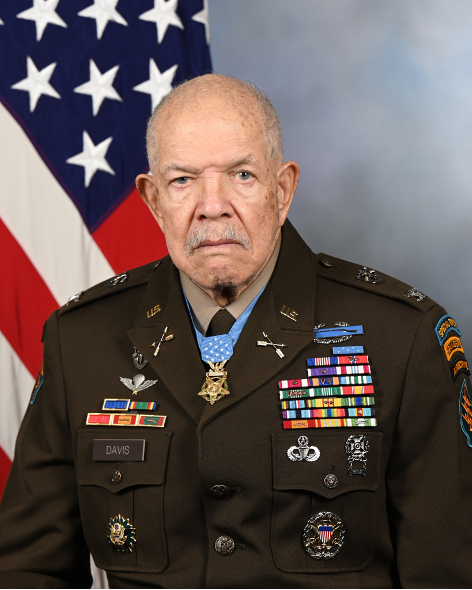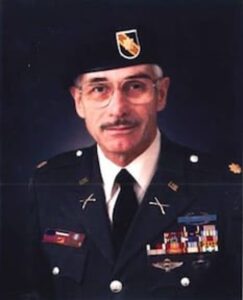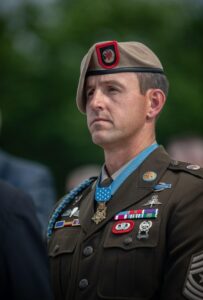In his youth, Paris Davis had interests in sports and the military. Thanks to an R.O.T.C. scholarship, he was able to partake in both at Southern University in Baton Rouge, Louisiana, where he was an All-American on the football team and studied political science.
In 1959, Davis commissioned as an Army reserve officer, then studied and graduated from Ranger school and Airborne school in 1960. He first served in Korea, then the Vietnam War. In 1962, Davis completed his first, relatively uneventful deployment to Vietnam. On his second tour in 1965, he was promoted to captain, making him one of the first African American Special Forces officers. Unfortunately, Davis’s second tour was to be much more eventful than the previous one.
Surprising the Enemy
On June 18, 1965, Davis led 12 Special Forces teammates and a volunteer company of 90 South Vietnamese soldiers to attack enemy forces at a camp in Bình Định province, Vietnam. Davis and Master Sergeant Billy Waugh killed the enemy commander at close range in his tent, and the team threw grenades and unleashed heavy ammunition throughout the rest of the camp. In the early morning, the surprise attack seemed to be working — enemy troops fled to the jungle for survival.
But suddenly, the opposition returned fire. Davis and his troops were quickly outnumbered and forced to retreat to a rice paddy with zero coverage. Davis lost a portion of his trigger finger and several teeth from a nearby grenade blast. Waugh’s knee shattered from a sniper bullet, and the demolition specialist, Staff Sergeant David Morgan, was knocked unconscious from mortar fire. The team’s only medic, Specialist Four Robert Brown, received a bullet to his head but survived. Although the situation looked grim, Davis commanded the remaining volunteers to take cover on a small hill. For the next 10 hours, he and the rest of his men fended off enemy strikes as best they could.
Hours later, American fighter jets intervened, providing relief for their weary comrades on the ground. Davis took the opportunity to begin a risky and dangerous rescue mission, recovering his three severely wounded Special Forces teammates. He refused to evacuate until his entire team was safely in the chopper. First, he retrieved Morgan, then Waugh, and finally Brown. During these heroic efforts, Davis sustained wounds to the leg and arm. But all four Special Forces soldiers came home alive, thanks to their fiercely brave leader.
A Long-Overdue Honor
In 1969, Davis served his third and final tour in Vietnam. He retired from the Army in 1985 and published the Metro Herald newspaper in his hometown of Alexandria, Virginia, for 30 years. For his unbelievable actions in Vietnam, Davis received the Silver Star, a Purple Heart with one bronze oak leaf cluster, the Bronze Star Medal, and the Soldier’s Medal for heroism (for rescuing a fellow comrade from a burning fuel truck before it exploded).
However, his peers believed that Davis deserved more recognition. Major Billy Cole, his commanding officer, submitted Davis for the Medal of Honor shortly after the episode in Bình Định province. After receiving no word or updates, the major pushed for information. In 1969, a committee stated that the original submission record was nowhere to be found and requested that the Army resubmit it. But this paperwork was also lost.
At last, Congress intervened. On March 3, 2023, almost 60 years after his acts on the battlefield, Davis received his long-awaited Medal of Honor. He is one of four Recipients to be awarded both the Soldier’s Medal and the Medal of Honor. Davis continues to reside in Virginia and enjoys spending time with his children and grandchildren.




